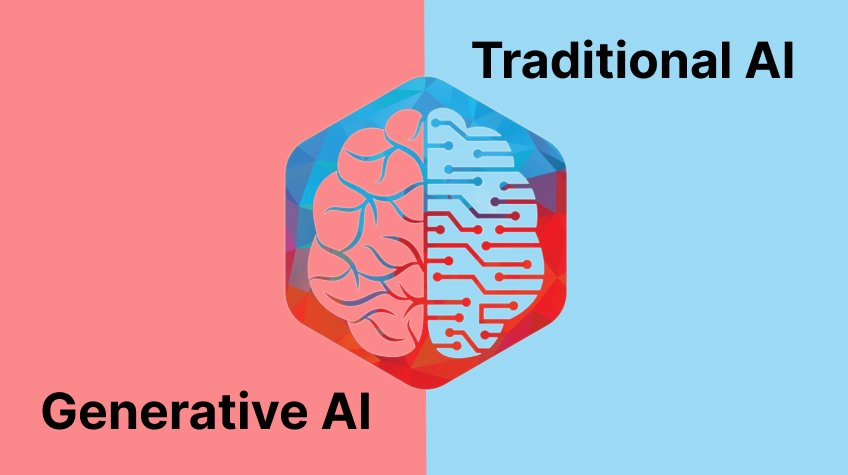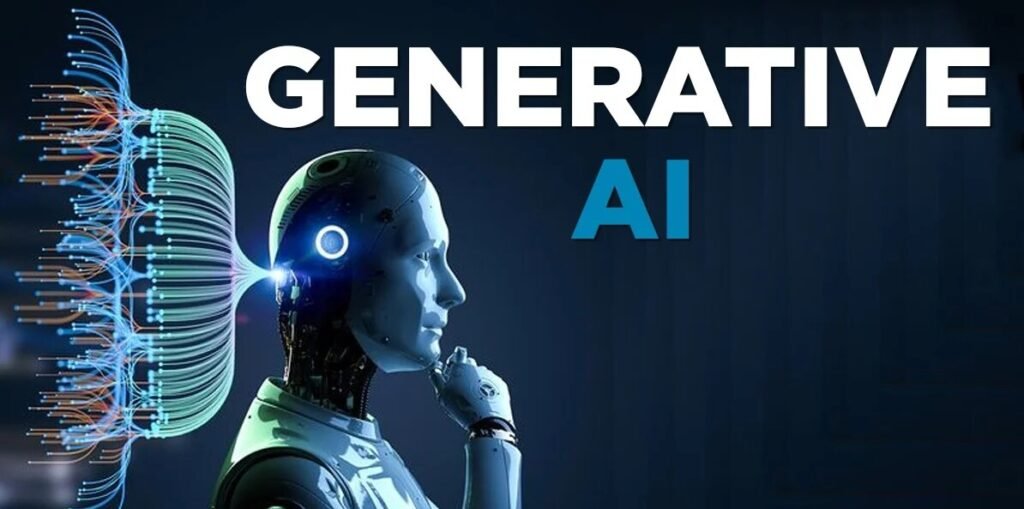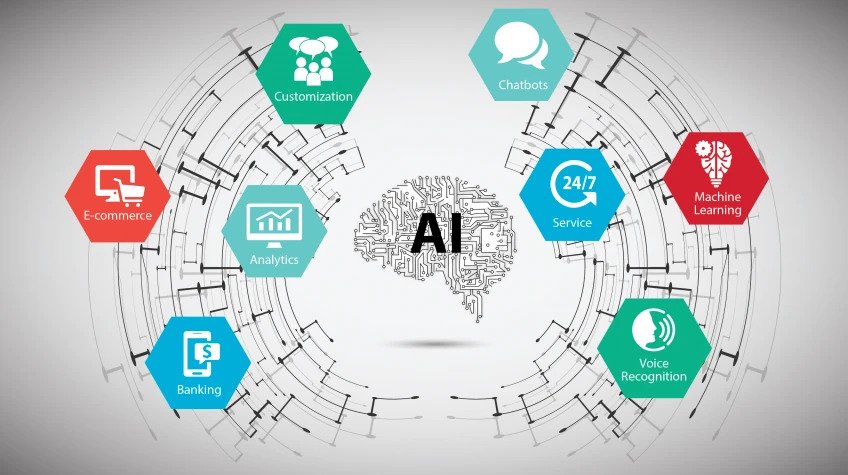In today’s data-driven world, making sense of the vast amounts of information available is crucial for businesses. Traditional data analysis methods often fall short in extracting meaningful insights from complex datasets. This is where generative AI analytics comes in, offering a revolutionary approach to data interpretation. Generative AI uses advanced algorithms to generate new data and insights, transforming how businesses analyze and leverage their information. This article explores how generative AI analytics is changing the game, providing detailed insights and actionable strategies for businesses to harness its power.
Understanding Generative AI
What is Generative AI?
Generative AI refers to a subset of artificial intelligence that can generate new data based on the data it has been trained on. Unlike traditional AI, which typically classifies or predicts based on existing data, generative AI can create new content, such as text, images, or even music.
In the context of analytics, generative AI can produce new insights and interpretations from existing datasets, providing a deeper understanding of the information.
How Generative AI Works
Generative AI uses complex algorithms, such as Generative Adversarial Networks (GANs) and Variational Autoencoders (VAEs), to learn patterns and structures within the data. GANs consist of two neural networks—a generator and a discriminator—that work together to produce realistic data.
The generator creates new data, while the discriminator evaluates its authenticity. Through this iterative process, the AI becomes adept at generating high-quality data that mirrors the original dataset.
Transforming Data Interpretation
Enhancing Data Quality
One of the significant advantages of generative AI is its ability to enhance data quality. Traditional data analysis often struggles with incomplete or noisy datasets.
Generative AI can fill in gaps and smooth out inconsistencies, creating a more accurate and reliable dataset for analysis. For example, if a business has missing data points in customer records, generative AI can predict and fill in these gaps based on existing patterns, ensuring a complete and consistent dataset.
Discovering Hidden Patterns
Generative AI excels at uncovering hidden patterns within complex datasets. Traditional analytics might miss subtle correlations or trends, but generative AI can identify these nuances.
This capability is particularly valuable in fields like healthcare, finance, and marketing, where understanding intricate patterns can lead to better decision-making. For instance, in marketing, generative AI can reveal previously unnoticed consumer behavior trends, enabling more targeted and effective campaigns.
Predictive Analytics
Generative AI enhances predictive analytics by providing more accurate and detailed forecasts. By generating new data based on historical trends, generative AI can simulate various scenarios and predict future outcomes with greater precision.
This is crucial for businesses looking to anticipate market changes, customer behavior, or financial performance. For example, a retail business can use generative AI to predict future sales trends based on past data, helping them optimize inventory and marketing strategies.
Practical Applications of Generative AI Analytics
Marketing and Customer Insights
Generative AI can revolutionize how businesses approach marketing and customer insights. By analyzing vast amounts of customer data, generative AI can generate detailed customer profiles and predict future behavior.
This enables businesses to create highly personalized marketing campaigns that resonate with their target audience. Additionally, generative AI can identify emerging trends and consumer preferences, allowing businesses to stay ahead of the competition.
Financial Forecasting
In the financial sector, accurate forecasting is crucial for making informed investment decisions. Generative AI can enhance financial forecasting by analyzing historical data and generating realistic projections.
This helps financial analysts and investors identify potential risks and opportunities, leading to more strategic decision-making. For example, generative AI can simulate different economic scenarios and predict their impact on stock prices, helping investors make better-informed choices.
Healthcare Analytics
Healthcare is another field where generative AI analytics can have a profound impact. By analyzing patient data, generative AI can generate insights that improve diagnosis and treatment plans.
For instance, generative AI can predict disease progression based on patient history and recommend personalized treatment plans. This not only improves patient outcomes but also enhances the efficiency of healthcare providers.
Enhancing Business Operations
Supply Chain Management
Generative AI can significantly improve supply chain management by providing more accurate demand forecasts and optimizing inventory levels. By analyzing historical sales data, seasonal trends, and other relevant factors, generative AI can predict future demand more precisely.
This helps businesses maintain optimal inventory levels, reduce costs, and minimize stockouts or overstock situations. For example, a manufacturing company can use generative AI to forecast demand for different products, ensuring they produce the right amount to meet customer needs without excess.
Workforce Optimization
Managing a workforce efficiently is critical for business success. Generative AI can analyze employee performance data, workload patterns, and other factors to optimize workforce allocation. This includes predicting staffing needs, identifying skills gaps, and suggesting training programs to enhance productivity.
For instance, a retail business can use generative AI to forecast peak shopping times and schedule staff accordingly, ensuring they have the right number of employees on hand to meet customer demand.
Product Development
Generative AI can accelerate product development by generating new ideas and designs based on market trends and consumer preferences. By analyzing data from various sources, such as social media, customer reviews, and sales figures, generative AI can identify gaps in the market and suggest innovative product features.
This enables businesses to develop products that meet customer needs and stay ahead of competitors. For example, a tech company can use generative AI to analyze user feedback and generate ideas for new features in their software products.
Overcoming Challenges with Generative AI
Data Privacy and Security
One of the significant challenges with using generative AI is ensuring data privacy and security. Businesses must ensure that the data used for AI training is protected and complies with relevant regulations.
This includes anonymizing sensitive data and implementing robust security measures to prevent unauthorized access. Additionally, businesses should be transparent with customers about how their data is used and obtain necessary consents.
Ethical Considerations
The use of generative AI also raises ethical considerations, such as the potential for biased algorithms and the impact on employment.
Businesses must ensure that their AI models are fair and unbiased, which involves regularly auditing the algorithms and the data used for training. Furthermore, businesses should consider the broader societal implications of AI and strive to use it in ways that benefit society as a whole.
Integration with Existing Systems
Integrating generative AI with existing business systems can be complex. Businesses need to ensure that their AI solutions are compatible with their current infrastructure and can be seamlessly integrated into their workflows.
This may involve investing in new technologies or updating existing systems to support AI capabilities. Additionally, businesses should provide training for employees to help them understand and effectively use AI tools.
The Future of Generative AI Analytics
Continuous Learning and Improvement
Generative AI is continuously evolving, with new advancements and improvements being made regularly. Businesses that adopt generative AI analytics must stay updated with the latest developments to ensure they are leveraging the most advanced capabilities.
This involves investing in ongoing research and development, as well as collaborating with AI experts and technology providers.
Expanding Applications
The applications of generative AI are expanding across various industries, from healthcare and finance to retail and manufacturing. As businesses continue to explore and experiment with generative AI, new use cases and opportunities will emerge.
This presents exciting possibilities for innovation and growth, as businesses discover new ways to leverage AI to improve their operations and achieve their goals.
Democratizing AI
As generative AI technology becomes more accessible, smaller businesses and startups will also have the opportunity to benefit from its capabilities.
This democratization of AI will enable more businesses to harness the power of advanced analytics, driving innovation and competitiveness across various sectors. By making AI tools and resources more widely available, businesses of all sizes can leverage generative AI to transform their data interpretation and decision-making processes.
Strategic Recommendations for Businesses

Invest in AI Capabilities
To fully benefit from generative AI analytics, businesses should invest in building their AI capabilities.
This includes acquiring the necessary technologies, hiring skilled professionals, and providing training for existing employees. By developing a strong AI foundation, businesses can ensure they are well-equipped to leverage generative AI for data interpretation and decision-making.
Collaborate with AI Experts
Collaborating with AI experts and technology providers can help businesses navigate the complexities of implementing generative AI solutions.
These experts can provide valuable insights and guidance on best practices, ensuring that businesses maximize the benefits of AI while avoiding common pitfalls. By leveraging the expertise of AI professionals, businesses can accelerate their AI initiatives and achieve better results.
Focus on Data Quality
The quality of data used for AI training is crucial for the accuracy and reliability of generative AI models. Businesses should prioritize data quality by implementing robust data management practices and regularly auditing their datasets.
This includes ensuring that data is accurate, complete, and free from biases. By maintaining high data quality, businesses can improve the performance of their generative AI models and obtain more meaningful insights.
Comparing Generative AI with Traditional Data Interpretation Methods
Traditional Data Analytics
Traditional data analytics relies heavily on statistical methods and predefined algorithms to analyze historical data. These methods include descriptive analytics, which summarizes past data, and diagnostic analytics, which explains why certain events occurred.
While effective to a degree, traditional methods can be limited by their reliance on structured data and their inability to handle large, complex datasets efficiently.
Limitations of Traditional Methods
One major limitation of traditional data analytics is its dependency on historical data. This means that these methods often struggle to provide accurate predictions in rapidly changing environments.
Additionally, traditional analytics can miss subtle patterns and correlations within data, leading to less comprehensive insights. These limitations can hinder a business’s ability to respond swiftly to market changes and emerging trends.
Generative AI Analytics
Generative AI, on the other hand, excels at processing and interpreting both structured and unstructured data. By using advanced machine learning algorithms, generative AI can generate new data and insights, uncover hidden patterns, and provide more accurate predictions.
This capability allows businesses to gain a deeper understanding of their data and make more informed decisions.
Benefits of Generative AI Over Traditional Methods
Generative AI offers several advantages over traditional data analytics methods. First, it can handle vast amounts of data from various sources, providing a more comprehensive view of the information.
This includes analyzing text, images, and other unstructured data that traditional methods might struggle with. Second, generative AI’s predictive capabilities are far superior, as it can simulate various scenarios and generate forecasts with greater accuracy.
Lastly, generative AI continuously learns and adapts, improving its performance over time and providing increasingly valuable insights.
Enhancing Customer Experience with Generative AI
Personalizing Customer Interactions
Generative AI can significantly enhance customer experiences by enabling personalized interactions at every touchpoint. By analyzing customer data such as purchase history, browsing behavior, and social media activity, AI can generate personalized recommendations, offers, and content that align with individual preferences.
For example, an e-commerce site can use generative AI to recommend products tailored to each customer’s tastes, leading to higher engagement and conversion rates.
Improving Customer Support
AI-powered chatbots and virtual assistants are revolutionizing customer support. These AI tools can handle a wide range of inquiries, providing instant and accurate responses.
Generative AI enhances these capabilities by enabling more natural and contextually aware conversations. For instance, a generative AI chatbot can understand complex customer queries, provide detailed answers, and even engage in multi-turn conversations that mimic human interactions.
This leads to faster resolution times and improved customer satisfaction.
Anticipating Customer Needs
Generative AI can predict customer needs by analyzing patterns and trends in customer behavior. By identifying signals that indicate potential needs or issues, businesses can proactively address them.
For example, an AI system might predict when a customer is likely to need a product refill and send a timely reminder or offer. This proactive approach not only enhances the customer experience but also builds loyalty and trust.
Streamlining Marketing Efforts
Content Creation
Generative AI can assist in creating high-quality marketing content. By analyzing existing content and understanding audience preferences, AI can generate blog posts, social media updates, email newsletters, and more.
This not only saves time but also ensures that the content is relevant and engaging. For example, AI can generate personalized email content for different customer segments, increasing the effectiveness of email marketing campaigns.
Enhancing Ad Campaigns
AI can optimize advertising campaigns by analyzing performance data and making real-time adjustments. Generative AI can create multiple versions of ads, each tailored to different audience segments, and test them to determine which performs best.
This continuous optimization helps businesses maximize their return on investment (ROI) and reach their target audience more effectively. For instance, an AI system can adjust ad copy, visuals, and targeting parameters based on real-time feedback, ensuring the best possible outcomes.
Analyzing Market Sentiment
Understanding market sentiment is crucial for effective marketing strategies. Generative AI can analyze vast amounts of data from social media, reviews, and other sources to gauge public opinion about products, brands, and competitors.
This analysis helps businesses understand how they are perceived in the market and identify areas for improvement. For example, AI can highlight common customer complaints or praise, providing insights that can inform marketing strategies and product development.
Enhancing Operational Efficiency
Automating Routine Tasks
Generative AI can automate many routine tasks, freeing up employees to focus on more strategic activities. This includes tasks such as data entry, report generation, and routine communications. By automating these tasks, businesses can improve efficiency, reduce errors, and lower operational costs.
For instance, an AI system can automatically generate sales reports based on real-time data, providing accurate insights without manual effort.
Enhancing Supply Chain Efficiency
In supply chain management, generative AI can optimize various processes, from demand forecasting to inventory management. By analyzing historical data and current trends, AI can predict demand more accurately, ensuring that inventory levels are optimized to meet customer needs without overstocking.
This leads to reduced costs and improved customer satisfaction. For example, a retailer can use AI to predict seasonal demand and adjust their inventory accordingly, avoiding stockouts and excess inventory.
Improving Decision-Making
Generative AI provides valuable insights that enhance decision-making across the organization. By analyzing data from various sources, AI can identify trends, opportunities, and potential risks.
This information helps business leaders make informed decisions that support growth and competitiveness. For instance, AI can analyze market trends to identify emerging opportunities, allowing businesses to adjust their strategies proactively.
Ethical and Responsible Use of Generative AI
Ensuring Data Privacy
As businesses increasingly rely on AI, ensuring data privacy is paramount. Generative AI systems must be designed to protect customer data and comply with data privacy regulations.
This includes implementing robust data encryption, anonymizing sensitive information, and obtaining explicit consent from users. By prioritizing data privacy, businesses can build trust with their customers and avoid legal issues.
Addressing Bias and Fairness
AI systems can sometimes exhibit biases based on the data they are trained on. It is crucial for businesses to regularly audit their AI models to identify and address any biases.
This includes using diverse datasets for training and implementing fairness checks in the AI development process. Ensuring that AI systems are fair and unbiased helps businesses provide equitable services and maintain a positive reputation.
Transparency and Accountability
Businesses must be transparent about how they use AI and the impact it has on customers and employees.
This includes clearly communicating the role of AI in decision-making processes and being accountable for the outcomes. By adopting transparent practices, businesses can foster trust and demonstrate their commitment to ethical AI use.
Preparing for the Future with Generative AI
Investing in AI Skills
To fully leverage generative AI, businesses must invest in developing AI skills within their organization.
This includes training employees on AI tools and techniques, hiring AI experts, and fostering a culture of continuous learning. By building a skilled AI workforce, businesses can stay competitive and innovate effectively.
Collaborating with AI Innovators
Partnering with AI innovators and technology providers can help businesses stay at the forefront of AI advancements.
These collaborations can provide access to cutting-edge AI technologies, expertise, and best practices. By working with AI innovators, businesses can accelerate their AI initiatives and achieve better results.
Staying Agile and Adaptive
The field of AI is constantly evolving, and businesses must remain agile and adaptive to keep up with the changes.
This includes regularly reviewing and updating AI strategies, experimenting with new AI applications, and being open to change. By staying agile, businesses can quickly adapt to new opportunities and challenges, ensuring long-term success.
Real-World Examples of Generative AI vs. Traditional Methods

Marketing Campaigns
In marketing, traditional methods might analyze past campaign performance to suggest future strategies. However, this approach often relies on basic metrics and can miss deeper insights.
Generative AI, by contrast, can analyze customer behavior, social media trends, and other factors to generate highly personalized marketing strategies. For example, AI can predict which type of content will resonate most with different audience segments, optimizing campaign effectiveness.
Financial Forecasting
Traditional financial forecasting methods use historical data to predict future trends, but they can fall short in volatile markets. Generative AI enhances this process by simulating various economic scenarios and generating more accurate predictions.
For instance, while traditional methods might predict a general trend in stock prices, generative AI can provide detailed insights into specific factors driving these trends, such as geopolitical events or market sentiment changes.
Healthcare Diagnostics
In healthcare, traditional data analysis might involve manually reviewing patient records and test results to diagnose conditions. This process can be time-consuming and prone to errors.
Generative AI can analyze vast amounts of patient data, including medical histories and imaging results, to generate more accurate diagnoses and personalized treatment plans. For example, AI can identify early signs of diseases that traditional methods might miss, leading to better patient outcomes.
Implementing Generative AI in Your Business
Steps to Get Started
Implementing generative AI in your business involves several key steps. First, identify the areas where AI can add the most value, such as improving decision-making, enhancing customer insights, or optimizing operations.
Next, invest in the necessary technology and infrastructure to support AI capabilities. This might include cloud computing resources, data storage solutions, and AI software tools.
Building a Skilled Team
Building a skilled team is crucial for successfully implementing generative AI. This includes hiring data scientists, machine learning engineers, and AI specialists who can develop and manage AI models.
Additionally, provide training for existing employees to help them understand and leverage AI tools effectively. A strong team ensures that your business can maximize the benefits of generative AI and stay ahead of the competition.
Continuous Improvement and Innovation
Generative AI is an evolving field, so continuous improvement and innovation are essential. Regularly update your AI models with new data and refine your algorithms to improve accuracy and performance.
Stay informed about the latest advancements in AI technology and explore new use cases for generative AI in your business. By fostering a culture of innovation, you can ensure that your business remains competitive and adaptable in a rapidly changing market.
Challenges and Considerations
Data Quality and Management
One of the primary challenges in implementing generative AI is ensuring high-quality data. Poor-quality data can lead to inaccurate insights and predictions.
Businesses must invest in robust data management practices, including data cleaning, validation, and integration. Ensuring that your data is accurate, complete, and up-to-date is crucial for the success of your AI initiatives.
Ethical and Legal Implications
The use of generative AI also raises ethical and legal considerations. Businesses must ensure that their AI models are fair and unbiased, which involves regularly auditing algorithms and addressing any biases in the training data.
Additionally, businesses must comply with data privacy regulations and protect customer information. Being transparent about how AI is used and obtaining necessary consents is essential for maintaining trust and avoiding legal issues.
Integration with Existing Systems
Integrating generative AI with existing business systems can be complex. It may require significant changes to your IT infrastructure and workflows.
Businesses must ensure that their AI solutions are compatible with their current systems and can be seamlessly integrated. This might involve working with AI technology providers or consulting experts to develop a tailored integration strategy.
Enhancing Decision-Making Processes
Data-Driven Decision Making
Generative AI empowers businesses to make more informed and data-driven decisions. By providing deep insights and accurate predictions, AI helps businesses evaluate different options and choose the best course of action.
For example, a retail business can use generative AI to analyze customer purchase patterns and optimize product placements in stores. This data-driven approach enhances decision-making, reduces risks, and improves overall business performance.
Scenario Analysis and Planning
Generative AI can simulate various business scenarios, allowing businesses to explore the potential outcomes of different strategies. This capability is particularly valuable for strategic planning and risk management.
For example, AI can model the impact of different pricing strategies on sales and profits, helping businesses choose the most effective approach. By understanding the potential consequences of their decisions, businesses can plan more effectively and mitigate risks.
Real-Time Insights
In today’s fast-paced business environment, having access to real-time insights is crucial. Generative AI can analyze data in real-time, providing businesses with up-to-date information to support decision-making.
This real-time analysis enables businesses to respond quickly to changes in the market, customer behavior, or other external factors. For instance, a financial institution can use generative AI to monitor market conditions and adjust their investment strategies in real-time.
Generative AI in Competitive Analysis

Understanding Market Trends
Generative AI can analyze vast amounts of market data to identify emerging trends and patterns. This helps businesses stay ahead of the competition by anticipating market shifts and adapting their strategies accordingly.
For example, AI can analyze social media data to identify trending topics and consumer sentiments, providing businesses with insights into what their target audience cares about. By understanding these trends, businesses can tailor their marketing efforts to better meet customer needs and preferences.
Competitor Analysis
Competitive analysis is a critical aspect of strategic planning. Generative AI can analyze competitors’ activities, products, and marketing strategies to identify strengths, weaknesses, and opportunities.
This analysis helps businesses understand their competitive landscape and develop strategies to outperform their rivals. For example, AI can track competitors’ product launches, pricing changes, and promotional activities, providing businesses with valuable insights to refine their own strategies.
Identifying Market Opportunities
Generative AI can uncover new market opportunities by analyzing data from various sources, such as customer feedback, market reports, and industry trends. This analysis can reveal unmet needs, emerging markets, and potential areas for innovation.
For example, AI can identify gaps in the market where customer demand is not being fully met, allowing businesses to develop new products or services to capitalize on these opportunities.
Integrating Generative AI into Business Strategies
Aligning AI with Business Goals
To maximize the benefits of generative AI, businesses must align their AI initiatives with their overall business goals. This involves identifying the specific areas where AI can add value and developing a clear strategy for implementation.
For example, a business may decide to use generative AI to enhance customer segmentation and personalization efforts, with the goal of increasing customer engagement and sales.
Building an AI-Ready Culture
Successful integration of generative AI requires an organizational culture that embraces innovation and continuous learning. Businesses should encourage employees to adopt a data-driven mindset and provide training on AI tools and techniques.
This cultural shift ensures that employees are comfortable using AI and can effectively leverage its capabilities to drive business success.
Continuous Monitoring and Improvement
The implementation of generative AI is not a one-time effort but an ongoing process. Businesses should continuously monitor the performance of their AI models and make necessary adjustments to improve accuracy and relevance.
This includes regularly updating the data used for training, refining algorithms, and incorporating feedback from users. By continuously improving their AI capabilities, businesses can stay competitive and adapt to changing market conditions.
Future Outlook for Generative AI Analytics
Advancements in AI Technology
The future of generative AI analytics is promising, with ongoing advancements in AI technology expected to enhance its capabilities further. Developments in machine learning algorithms, data processing techniques, and computational power will enable more sophisticated and accurate data analysis.
Businesses that stay abreast of these advancements will be better positioned to leverage the full potential of generative AI.
Increased Adoption Across Industries
As generative AI becomes more accessible and its benefits more widely recognized, adoption across various industries is expected to increase.
From healthcare and finance to retail and manufacturing, businesses in all sectors can benefit from the advanced data interpretation capabilities of generative AI. This widespread adoption will drive innovation and competitiveness, leading to new use cases and applications.
Ethical and Responsible AI
As the use of generative AI grows, so does the importance of ethical and responsible AI practices. Businesses must ensure that their AI models are fair, transparent, and secure.
This includes addressing biases in data, protecting customer privacy, and being transparent about how AI is used. By prioritizing ethical AI practices, businesses can build trust with customers and stakeholders while leveraging AI to drive success.
Wrapping it up
Generative AI analytics is revolutionizing data interpretation, offering businesses unparalleled insights and capabilities. By enhancing customer experiences, streamlining marketing efforts, improving operational efficiency, and ensuring ethical use, generative AI empowers businesses to innovate and grow.
Investing in AI skills, collaborating with AI innovators, and staying agile will help businesses fully leverage this technology. Embracing generative AI is essential for thriving in today’s dynamic digital landscape.
READ NEXT:
- How to Create Impactful Real Estate Marketing Postcards
- How to Market Your Hair Styling Business
- Creative Text Marketing Campaign Ideas
- Effective Marketing Strategies for Lash Technicians
- How to Market Your Pressure Washing Business






















Comments are closed.